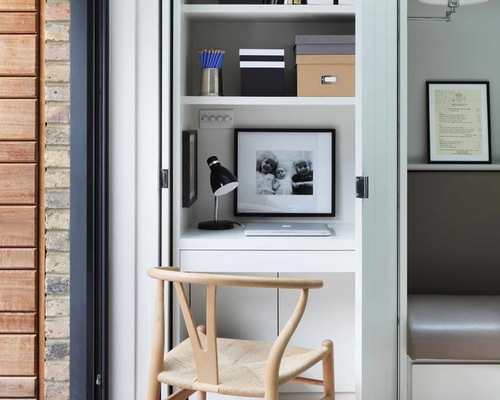By Laura Wheat, Houzz

Although there’s no magic formula that ensures the creation of a beautiful space, there are a few tips you can employ to get you going in the right direction. At the heart of every room design is practicality — because you won’t enjoy that chic sofa so much when you discover that its covers are nonremovable and that those squishy cushions require plumping approximately every seven minutes. Choose finishes that fit the way you live, whether that’s with children, with pets or in a pristine oasis with a strict “clear liquids only” rule. Then have some fun playing with swatches and plan, plan, plan until you’ve got every detail in the bag.
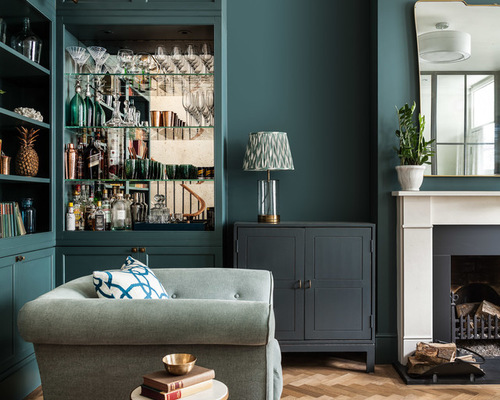
Jo Cowen Architects, original photo on Houzz
Layer in fine finishes. In this luxe living room, antiqued mirror is used to back dainty glass shelves, creating an elegant bar area that twinkles with Champagne flutes and vintage bottles. Although these may seem like insignificant details, taking the time to add in similar fine finishes will pay dividends when it comes to the overall ambience of a room.
Lighten the mood. Interior designers often use smaller spaces as a canvas on which to have fun and incorporate unique ideas. This kitsch cloakroom is the perfect example: The neutral base color is given a shock of neon trim, while a collection of entomology-themed artwork makes for eccentric impact. Why not make the tiniest room in the house the most merry?
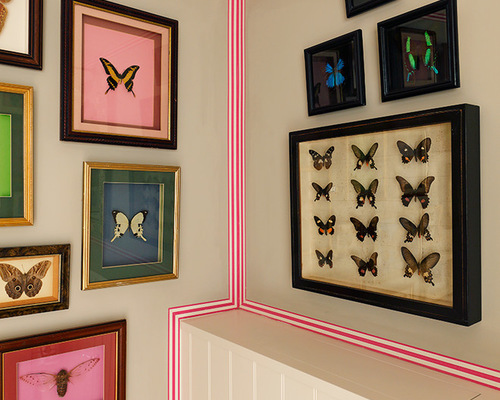
Find More Designer Living Room Ideas for Your Home
Seal the deal. Upgrade a plain stair runner with a punchy dark border for crisp definition that will add drama to even the most modest staircase. If your treads are particularly narrow, a cotton binding like this one might make the stairs look a little “stripey,” in which case you could try a simple bound edge — where the raw edge of the carpet is finished with loops of thread — for equally effective style.
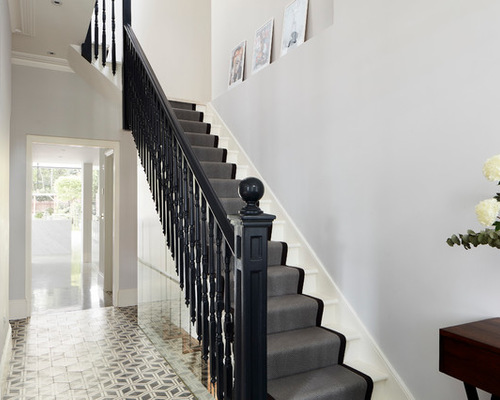
Try tone on tone. Cheat your way to painterly prowess by choosing a limited color palette and layering tints and tones of the same shades throughout your space for a harmonious effect. Interior designers are masters at this and you can be too — with a little practice.
Learn about great lighting. Even the most elegant interior will fail to shine if the lighting isn’t right. Aim to incorporate multiple different light sources at different heights — spotlights, wall lights, pendants and lamps all have their place. Ideally they’ll be controlled by several dimmer switches, creating maximum mood-inducing versatility.
Pick the Perfect Interior Lighting Setup
Plan everything. Creating places to display your things might not feel like something to tackle during a remodeling project, but think again. Floating shelves, for example, need to be installed before you paint, as they sit on hidden rods that are anchored into the wall. Designers have a plan for everything, which allows tasks to be completed in an efficient order and ensures that goals are met. Take a tip from them and do your homework before you start popping those paint cans.
Master the vignette. Put together a sweet assembly of favorite pieces to form an arrangement and you’ll notice that your rooms feel more purposeful. The vignette in this bedroom, for example, creates a pleasant view from the bed, as well as the opportunity to sweep fragrance from the scented candle around the room.
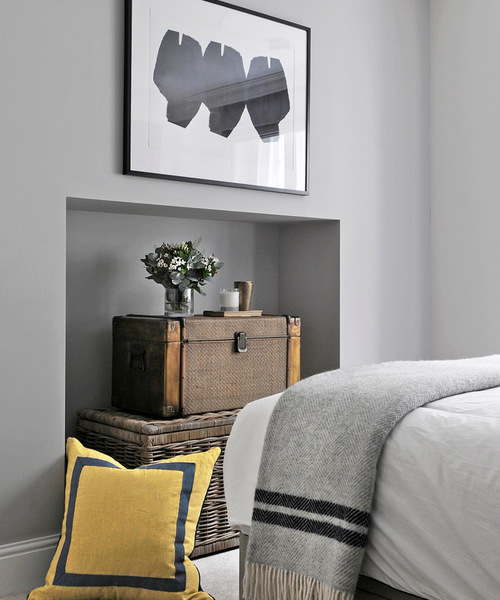
For a simple starting point, set up an armchair and side table with a pile of books, a floor lamp, a vase of flowers and a blanket. Guests will gravitate to this new nook and you’ll see the power of styling in action.
Remember two’s a charm. Interior designers love symmetry. Fireside alcoves are the ideal place to practice a bit of mirroring, with either built-in cabinets or free-standing console tables. Take elements such as plants, photos, decorative objects and books and repeat them almost identically on either side. Then switch a few pieces around and add in some random objects to prevent the final effect from being too regimented.
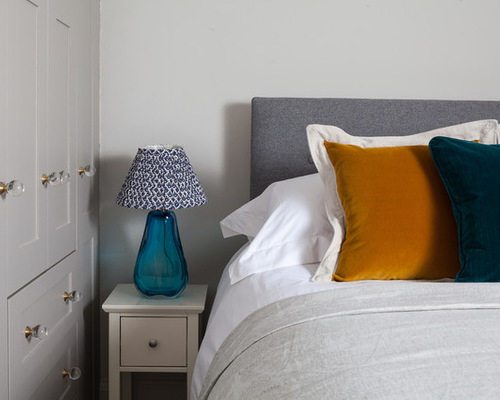
Get a handle on it. Interesting and elegant hardware will instantly elevate your cabinetry and can be swapped in without much fuss. Think texture, such as T-shaped pulls in faux bone or blackened metal finishes, simple leather straps, or tactile styles such as these crystal-ball-inspired acrylic beauties.
Home Office Designs That Boost Productivity
Be savvy with space. In addition to incorporating all of their clients’ aesthetic requirements, designers are experts at creating hardworking homes that function efficiently. Take the time to eke out every last inch of useful space now and you’ll save yourself from costly redesigns. This adorable desk is hidden in a kitchen cabinet but still manages to have a prime indoor-outdoor position that any office worker would envy.
